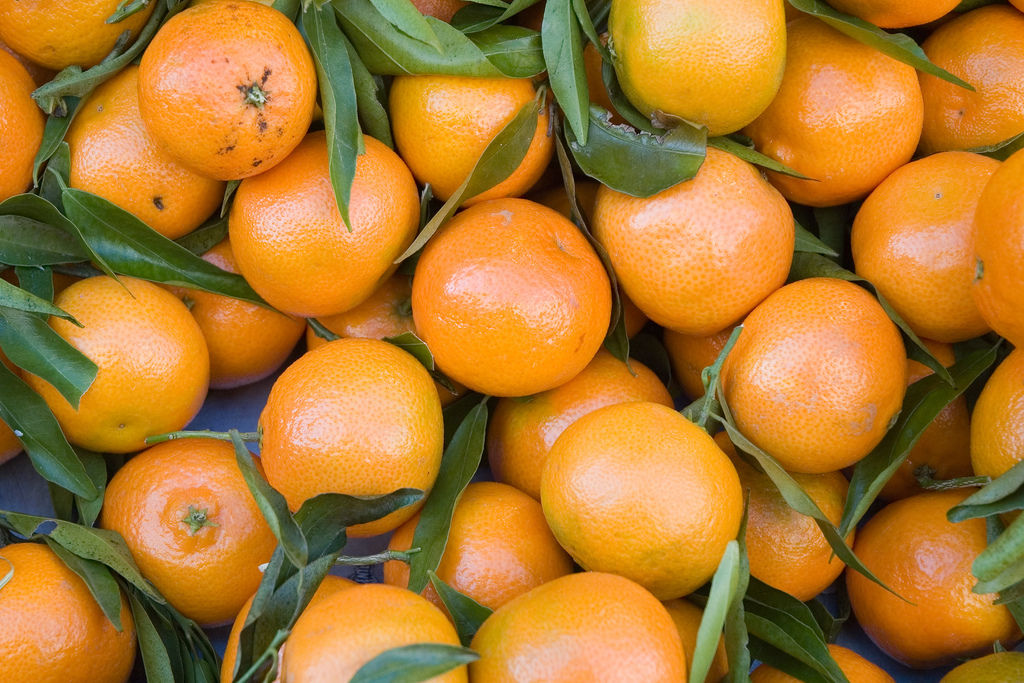What’s better than holiday treats? How about the origins of some of those treats, linguistic and otherwise? That’s what we’ll be taking a look at this week in this mini-series on holiday food words. First up, the clementine.
Along with all those chocolates, cookies, and giant cans of gourmet popcorn, you may also receive a box of juicy clementines. The clementine — also known as the Christmas orange since the breed peaks during the winter season — is a cross between a tangerine and an orange. It began as an “accidental hybrid,” says Oxford English Dictionary (OED).
The word seems to have originated in French around 1902 and might be named for Father Clement Rodier, a French missionary who is said to have discovered the breed “in the garden of his orphanage in Misserghin, near Oran, Algeria.”
The OED’s earliest citation in English is from 1926 — “The Clementine orange (a cross between tangerine and sour orange) is very severely affected [by citrus rust]” — although the Online Etymology Dictionary says the fruit might have been introduced into the U.S. as early as 1909.
Clementine is also an adjective that refers to “various popes who took the name Clement.” This is much older, originating around 1705. The name Clement comes from clement meaning mild in temper or weather, which in turn comes from the Latin clementem, “mild, placid, gentle.” Clemency is “a disposition to show mercy, especially toward an offender or enemy.”
The female name Clementine pre-dates the orange variety, although by how long we couldn’t find. A famous Clementine — Princess Marie-Clementine Bagration — was born in 1810 while the song, Oh My Darling, Clementine, is from about 1884.
Now how about what a clementine actually is? Like we said, the OED and other sources say it’s a cross between a tangerine and an orange. However, others describe it as a cross between a mandarin and an orange, and still others call it an “often seedless mandarin orange.”
A tangerine (named for Tangier, Morocco, its place of origin) seems to be either a kind of mandarin orange or closely related. Thus, using tangerine and mandarin interchangeably appears to be acceptable.
And while we’re at it, where does the name mandarin come from? The Online Etymology Dictionary says it’s after the color of the robes worn by mandarins, or imperial Chinese officials. However, the OED describes the mandarin as “the better kind of Chinese orange” (although better than what, it doesn’t say) and suggests that mandarin here “carries connotations of choiceness.”
The word mandarin, by the way, is Portuguese in origin and ultimately comes from the Sanskrit mantrī, mantrin-, “counselor.”
[Photo via Flickr: “Clementines,” CC BY 2.0 by Paul Asman and Jill Lenoble]
